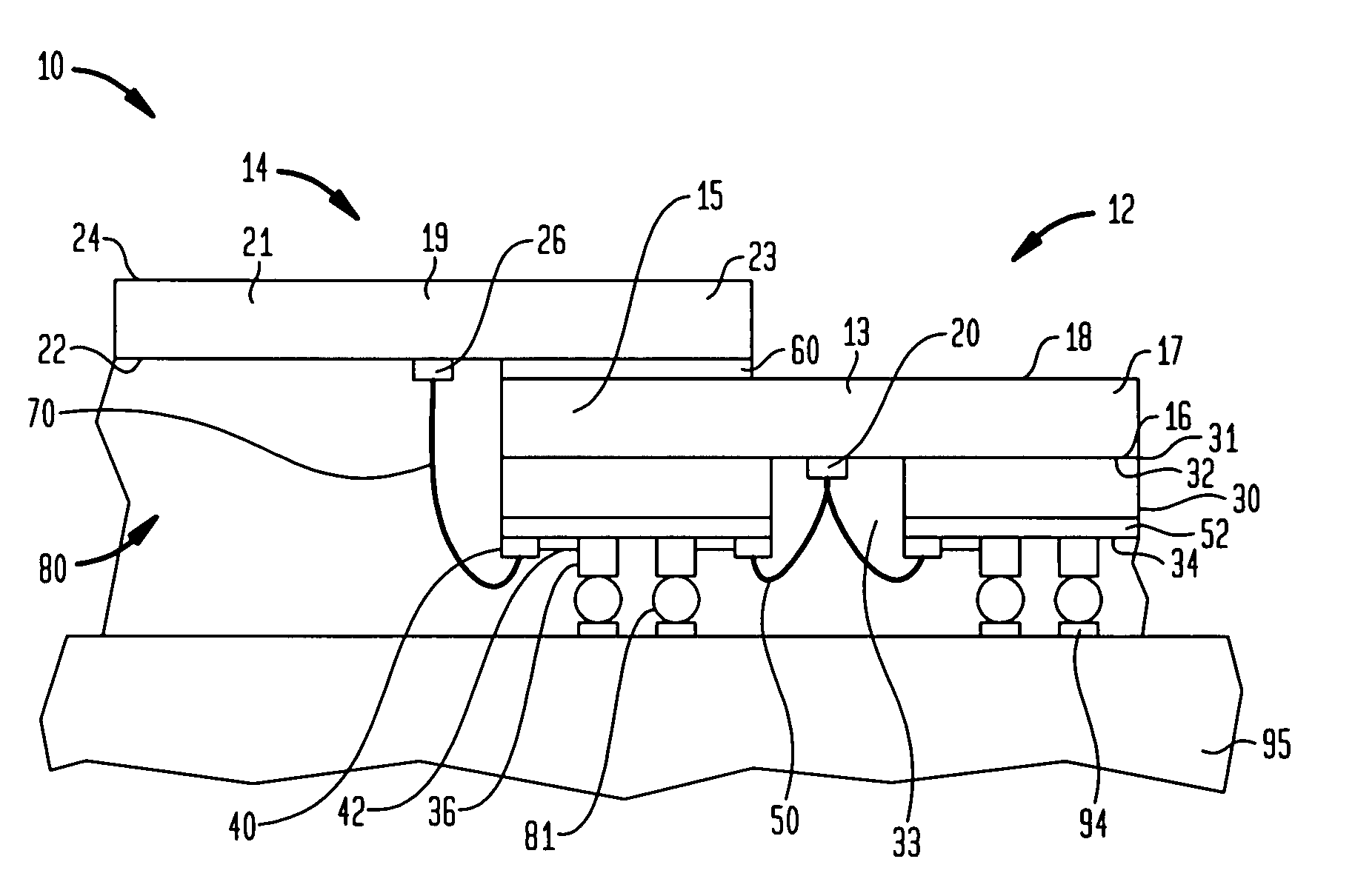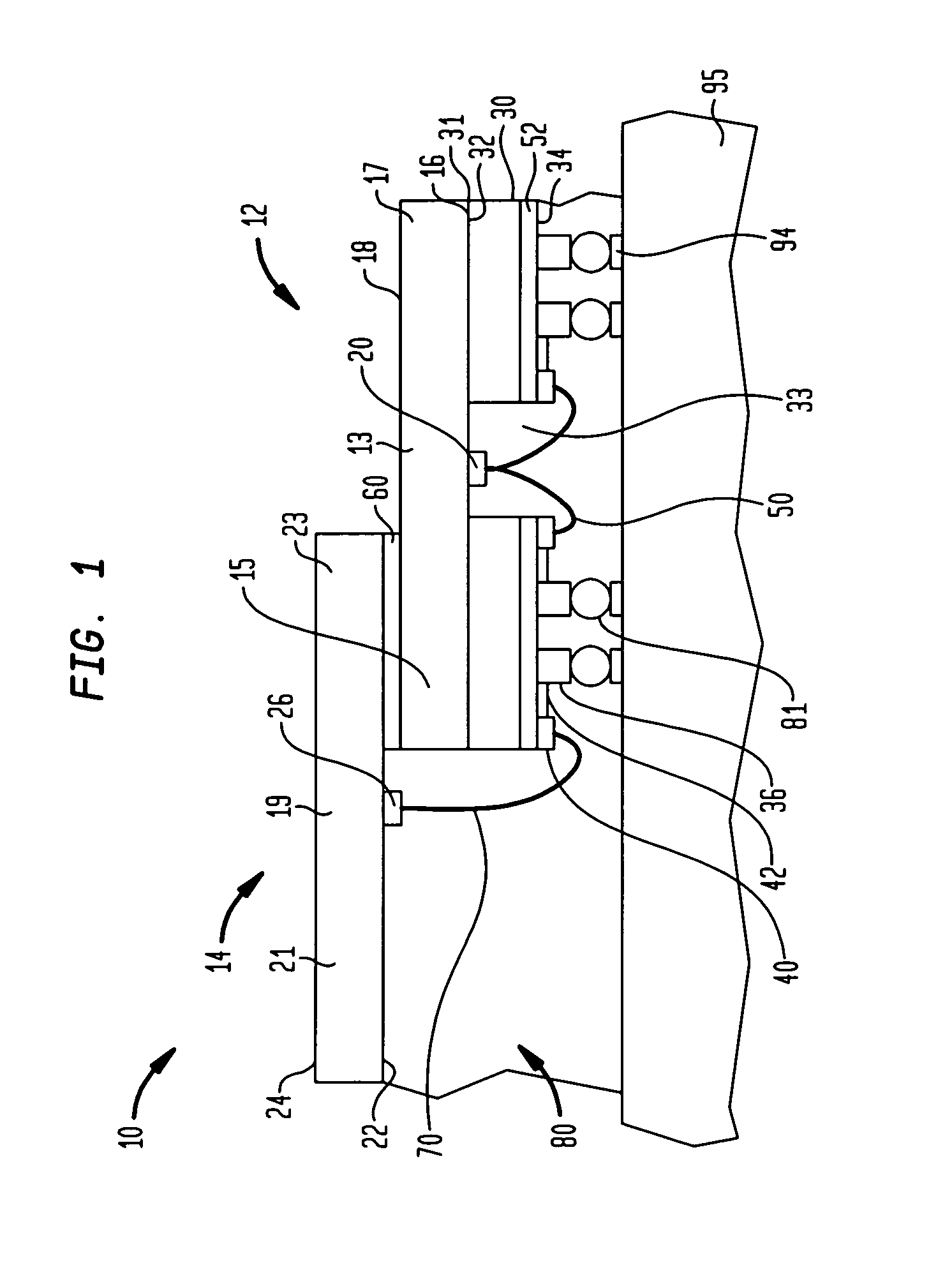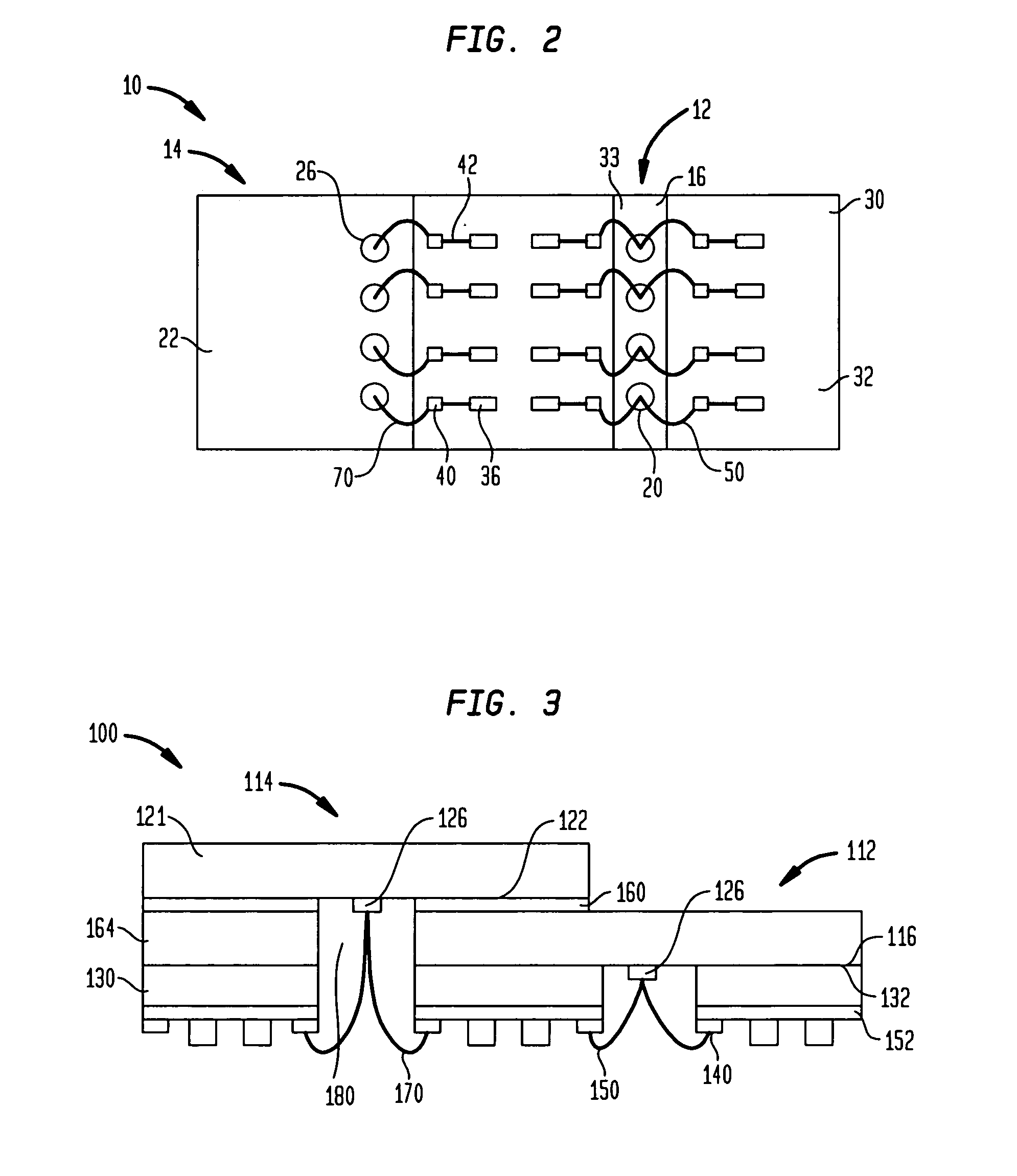Stacked microelectronic assemblies with central contacts
a technology of microelectronic assemblies and central contacts, which is applied in the direction of semiconductor devices, semiconductor/solid-state device details, electrical apparatus, etc., can solve the problems of cost and reliability problems, and the approach offers only limited reduction of the aggregate area of the circuit panel occupied
- Summary
- Abstract
- Description
- Claims
- Application Information
AI Technical Summary
Benefits of technology
Problems solved by technology
Method used
Image
Examples
first embodiment
[0020]Contacts 20 on the first microelectronic element 12 are exposed within central region 13 of front surface 16. For example, contacts 20 may be formed as one or two parallel rows adjacent to the center of surface 16. Microelectronic element 14 is arranged similarly to microelectronic element 12, in that it has a front surface 22, a back surface 24 opposite the front surface and electrical contacts 26 are exposed on the front surface 22. Microelectronic element 14 also includes a central region 19 and first and second end regions 21 and 23 adjacent to central region 19. In the invention, as shown in FIG. 1, each microelectronic element 12 and 14 is a conventional semiconductor chip. Similarly, contacts 26 of second microelectronic element 14 are disposed within central region 19 of front surface 22 and may also be formed as one or two parallel rows adjacent the center of front surface 22.
[0021]The front surface 16 of the first microelectronic element faces downwardly. Second micr...
third embodiment
[0038]As shown in FIG. 5, the invention makes use of the A-B-A configuration by continuing the structure horizontally outwards. FIG. 5 is a skeletal depiction of a B-A-B-A-B configuration. The structure may have a configuration of A-B-A-B-A or A-B-A-B or B-A-B-A-B, or any other combination of the two where a structure A and a structure B are adjacent to one another. These structures could be extended out indefinitely until a required amount of microelectronics elements are met. Additionally, structures that follow varying designs such as having a plurality of A structures adjacent to one another without an overlying B structure may be employed.
[0039]In an alternate embodiment of the present invention as shown in FIG. 6, assembly 300 includes microelectronic elements denoted by the structure A altered so as to include a substantially continuous dielectric element 330 underlying at least one microelectronic element denoted A. For this discussion microelectronic element 312 will repres...
PUM
 Login to View More
Login to View More Abstract
Description
Claims
Application Information
 Login to View More
Login to View More - R&D
- Intellectual Property
- Life Sciences
- Materials
- Tech Scout
- Unparalleled Data Quality
- Higher Quality Content
- 60% Fewer Hallucinations
Browse by: Latest US Patents, China's latest patents, Technical Efficacy Thesaurus, Application Domain, Technology Topic, Popular Technical Reports.
© 2025 PatSnap. All rights reserved.Legal|Privacy policy|Modern Slavery Act Transparency Statement|Sitemap|About US| Contact US: help@patsnap.com



